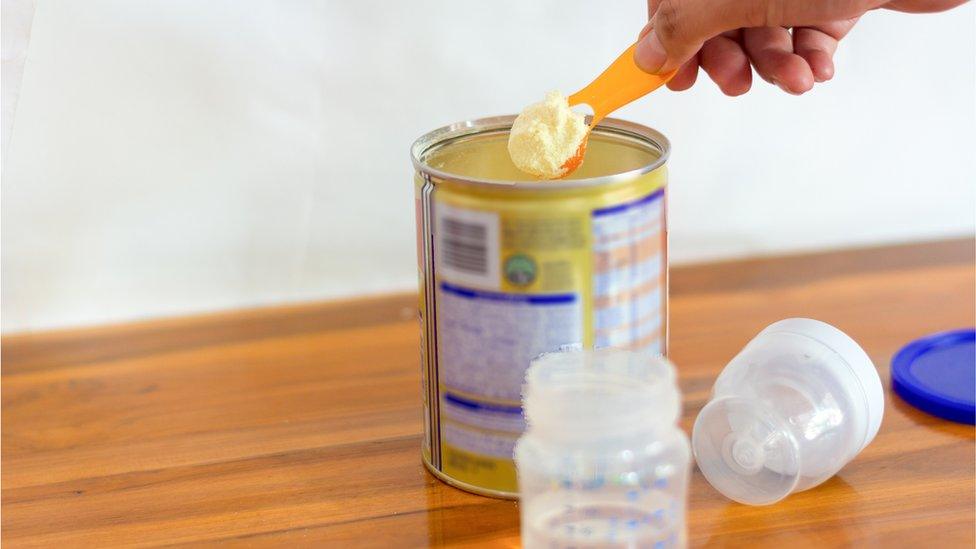Baby formula machines not killing bacteria, study finds
- Published
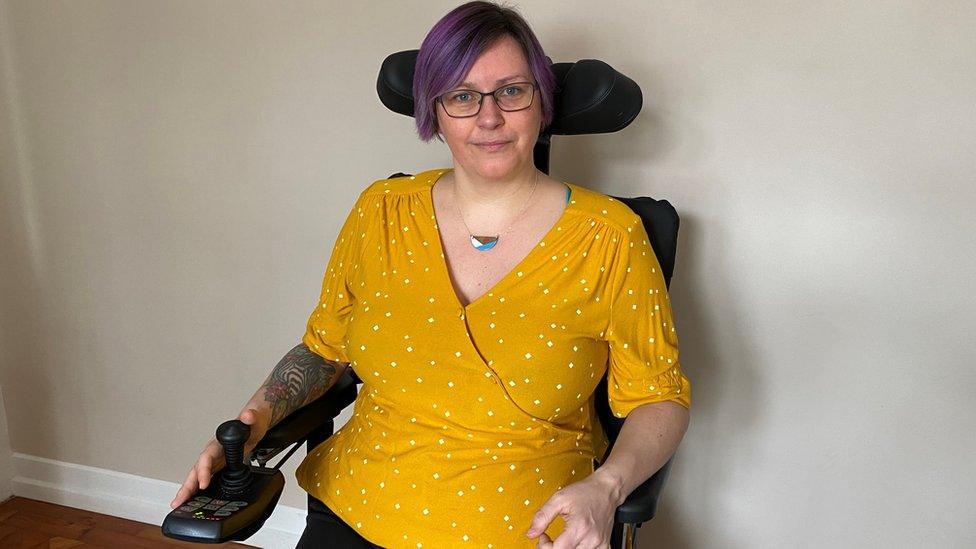
The study's lead, Dr Aimee Grant, said she is concerned at the results
Parents have been warned to check the temperature of babies' formula as a recent study showed 85% of machines tested did not kill harmful bacteria.
A mum who took part in the study said she was "shocked" to see her preparation machine failed despite being made specifically for babies.
Formula-fed babies have a higher risk of infections due to bacteria that live within powdered infant formula.
Researchers want better formula labelling and more data collection.
Swansea University's study revealed 85% of the 74 infant formula preparation machines tested by parents in UK homes did not produce water hot enough to kill harmful bacteria in infant formula.
This was compared with 69 parents in the study who used a kettle to heat the water, where 22% reported water temperatures not sufficiently hot enough.
Jonie Cooper, a parent who took part in the study, said the first time she tested her machine's water it was only 52C.
"When I saw this I was shocked because I trusted the machine to follow the NHS guidelines on the temperature of the water, because it was specifically designed for babies.
"I advise parents using a prep machine to check the temperature of the water," she said.
Formula-fed infants have a higher risk of gastrointestinal infections compared with breastfed infants, partly due to bacterial contamination from the powdered infant formula, which is not sold sterile.
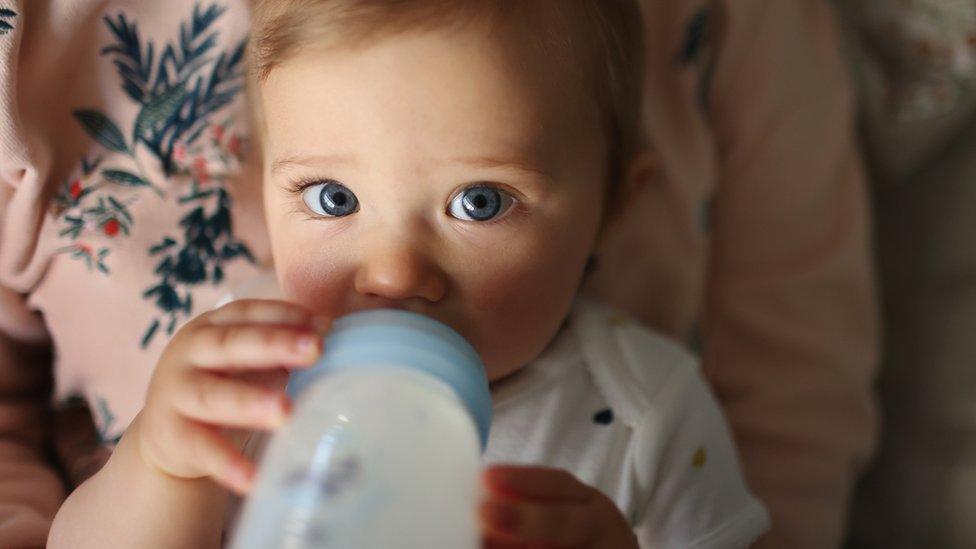
Harmful bacteria lives within infant formula and can cause infections
The feeding equipment and preparation with unclean hands can also increase the risk.
To reduce the risk of infections, the NHS says water used to make infant formula should be boiled to a temperature of at least 70C to eliminate bacteria, and then cooled.
The study's lead Dr Aimee Grant, Senior Lecturer in Public Health, said she was concerned at the results.
"If any parents are worried, I'd advise them to buy a food thermometer and test the temperature of just the hot water that comes out of their machine - but not to use this tested water in a feed, due to potential contamination.
"If it's below 70C, do not use the machine to prepare infant formula and contact the machine manufacturer."
The study said there must be stronger consumer protection on marketing of infant formula preparation devices to reduce bacterial contamination.
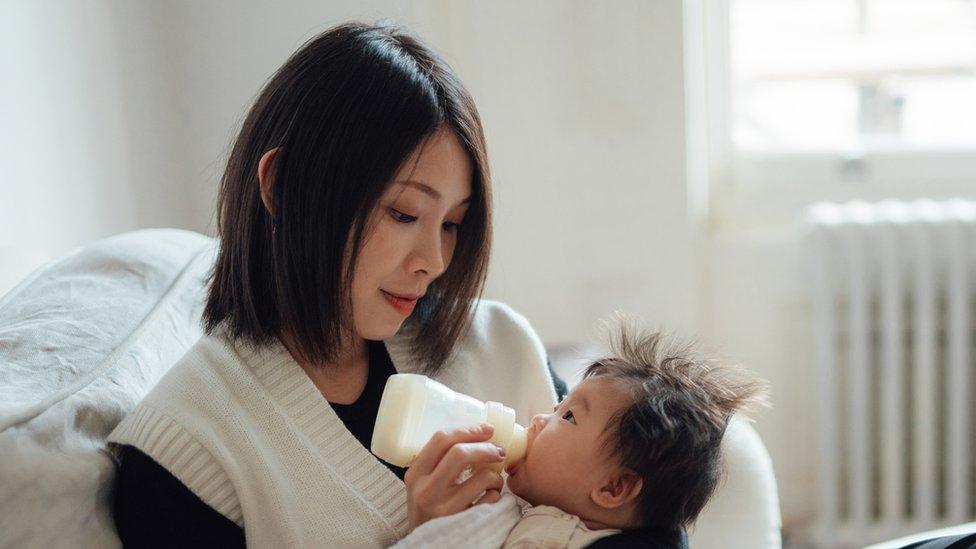
Formula-fed infants have a higher risk of gastrointestinal infections compared with breastfed infants
It also said formula labelling should have warnings that it is not sterile and must be prepared with water above 70C.
The study also recommended these public health messages should be shared in antenatal and postnatal infant feeding support.
The research team said data should be collected on the batches of infant formula and preparation equipment used when infants are taken to hospital with gastrointestinal infections.
Prof Robin May, chief scientific advisor at the Food Standards Agency said: "The findings of this project emphasise the importance of checking that water used to prepare infant formula is at a temperature of at least 70C, regardless of the method used."
He said if consumers discovered their machines did not produce hot enough water they should contact the manufacturer, their local Trading Standards Department or Citizens Advice.

TRAIN, COMPETE, SLEEP AND REPEAT: Welcome to the world of competitive ballroom dancing
INVISIBLE DISABILITIES: Spreading awareness and helping others

- Published30 May 2023
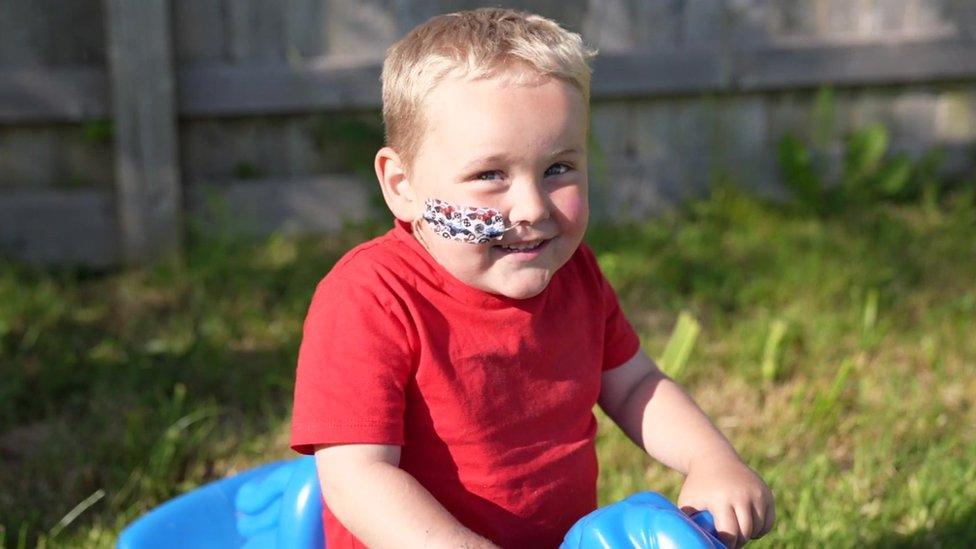
- Published16 February 2023
